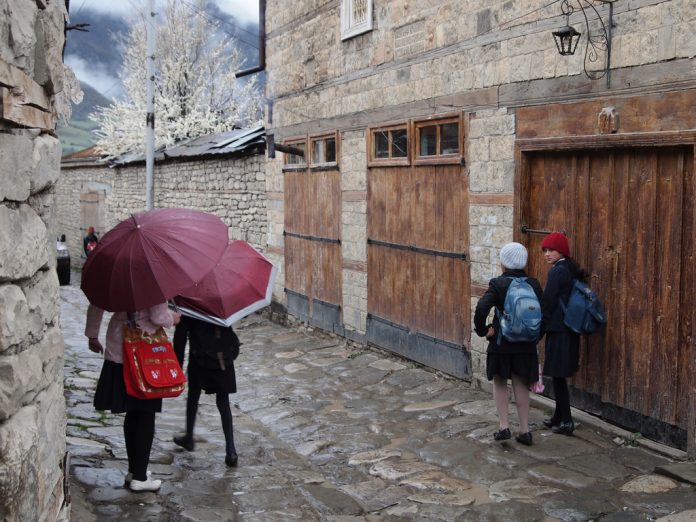The marriage of a 14-year-old girl to the man who allegedly raped her in Azerbaijan has turned the spotlight on the country’s widespread tolerance of families abusing their girls.
As reported by local media, the girl was repeatedly raped by a nephew of a local government official. The attack was filmed, apparently with the aim of blackmailing the girl into silence. She is now reportedly pregnant.
News of the crime spread via social media and became widely discussed in Azerbaijan.
When asked by reporters, the girls’ father said his daughter had not been raped but was engaged to the man in question and will marry him when she is of age. While the legal marriage age in Azerbaijan is 18, parents can apply for exemptions for girls as young as 15.
However, the suspect’s uncle, Aydin Mammadov, the deputy head of the local branch of Azerisiq, the state electricity company, said that his nephew did not rape the girl, nor did he plan to marry her.
“I will sue those who spread this news. Everything is slander,” he told the news site Qafqazinfo.
As reported by Eurasianet online, a group of human rights lawyers and activists have circulated a petition calling for the girl to be taken from her family. Under Azerbaijani law, the state can take a child away from his or her parents on grounds including “acts of domestic violence against the child” and “abuse of parental rights,” which the activists argue should be grounds for the government to step in.
“Taking into account the circumstances of this case and the concept of the best interest of the child, we believe that the child should be protected under state care and should receive the necessary psychological help,” the petition says.
According to Samad Rahimli, the lawyer who initiated the petition, these sorts of cases are common in Azerbaijan. “This is a systematic phenomenon, and now there is evidence for it,” he told Eurasianet.
Domestic violence is still seen as a “private matter” in Azerbaijan, wrote Gunel Isakova, an activist on gender rights, in a report for the Aland Islands Peace Institute.
“If a woman does decide to report the case, she may be further harassed by the local police,” she wrote. “The response given to her is usually the same: ‘You must have done something wrong otherwise why would he beat you?’ So, with further sense of shame and humiliation, the woman returns home, only to endure further pain at best, or beating at worst.”

